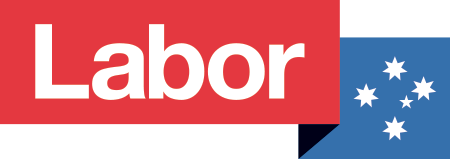
HON. WAYNE SWAN MP
FEDERAL MEMBER FOR LILLEY
"Address To The Geebung RSL ANZAC Day Dawn Service"
BRISBANE
WEDNESDAY, 25 APRIL 2012
***CHECK AGAINST DELIVERY***
Ladies and gentlemen. Fellow Australians. Friends. I am deeply honoured to be able to address you today. It's great to see so many of you here.
When the Great War broke out in 1914, Australia had been a federal commonwealth for only 13 years. In that sense, we were still young, like so many who fought. As we mark almost one hundred years since then, the emblem of the ANZAC tradition is stronger than ever.
ANZAC Day is a day where we honour our history. A day where we honour our fallen and those serving now. For me, if you'll indulge me for a moment, it's about honouring my father and my grandfather's service. I still remember vividly attending ANZAC Day ceremonies as a boy with my father in the fifties. And what mattered to us 50 years ago has only grown stronger.
One need only look at the commemorations around the country to see the many young faces in the crowds. It's the one day of the year where we as Australians truly unite, where we come together as a nation of equals, no matter who we are, how old we are or where we've come from. It unites us across generations, across heritage, across culture, religion and politics.
For Australia's story about the Great War, and the story about the Australians who fought so bravely, is a story of sacrifice, but also a story of the tragedy of war. It is a universal, and unifying, story about courage.
Every year, on this day, we ask ourselves that one fundamental question: why did they fight? And why do we still fight?
Is it about glory? Is it about empire-building? Is it about making one's mark? Or is it about something more?
Through the generations, it's been about basic principles. The principle of justice. The principle that nations that trample on the rights of others must be resisted. And it's been about our unswerving belief in democracy and equality. There was always a central idea that drove us – the idea of egalitarianism, that one person was as good as the next. In Australia, that idea is expressed as mateship.
Of course, in 1915, Australia was far from classless, but we were less constrained by class than most. Our ideal was no master, no servant – just individuals bound together as equals. The story of Gallipoli and the campaigns that followed in France, Belgium and Holland illustrated this.
We stood on the battlefields as a nation of equals. Because, unlike those of other countries, our officers and soldiers were not treated as separate castes. Our commanders valued the lives of their soldiers and spent those lives with the utmost reluctance. Of course, these egalitarian ideals were not born at Gallipoli – Australia was egalitarian from birth. But, at Gallipoli, those ideals were tested – and proved their worth.
What emerged was a moral code that rapidly established itself as our supreme national virtue – a combination of bravery, resilience, the ability to improvise, and sticking together in hard times no matter what. Looking after your mates.
Since our earliest days as a nation, that ethos has had a powerful hold on the Australian psyche. It's our national story – a story about being there for others when they need help, no matter where they are, or who they are. It's about defending anyone's right to pursue their own small patch of equality.
Our story of mateship is the same as the story about democracy – appreciating that the rights of others are one's own responsibility. Like so many of us here today, it is a culture that was implanted directly into my own family.
My grandfather, stirred by the story of Gallipoli, enlisted straightaway and was accepted one week after the peninsula's evacuation, to help make up the crippling losses the AIF had suffered. He eventually became part of Monash's 3rd Division, serving in the trenches on the Somme and in Flanders – where he fought at Ypres and Broodseinde, and where he received serious shrapnel wounds during the taking and holding of Messines Ridge.
He had the mud of Flanders on his boots, and the horror of it on his mind. Gassed, wounded repeatedly and a victim of influenza, he missed the breaking of the Hindenburg Line. The effects of that fighting broke my grandfather, who died partly of war-related ill-health at a younger age than I am now.
My father himself served in the Second World War in the RAAF, where he, too, was shelled, bombed and attacked by enemy infantry, constructing airfields on Tarakan and Balikpapan in 1945. Like his father, he saw friends killed. This is something he never forgot.
He, too, was infused by the ANZAC spirit of looking after others and, although a working man who never owned much, he devoted his post-war years to helping his fellow veterans and their widows and dependents, eventually becoming secretary of his local Returned Services League.
What my grandfather, my father and those who lie in numerous graves across the world believed was this: that a nation founded on the universal principle of equality is a nation worth fighting for. That's what ANZAC Day means to me.
There is nothing good about war. And yet it is extraordinary how it brings us together, sometimes decades later. I recently held a Defence Certificate of Appreciation ceremony in my electorate, and got to chatting to a constituent, Eric Clowes, about his and my father's service with the RAAF. The phrase "it's a small world" seemed an understatement when we realised that Eric and my father served together but didn't know each other.
I set about ordering service records for both my father, Maurice, and Eric through the National Archives of Australia. As it turned out, they had been discharged from the Redbank Personnel Depot only four months apart.
How extraordinary is that, to find that connection more than 70 years later? But it's extraordinary not just because it stretches back such a long way, but also because, well, here we were, Eric and me, with this common thread between us. A thread that unites us, regardless of who Eric and I are. A thread of equality that continues to be spun when we look at each other and recognise ourselves. The spirit of ANZAC. And now a new generation continues the ANZAC spirit.
Today, we honour all the men and women who have been and are in harm's way in too many conflicts and peacekeeping missions around the world. We honour the young Australians who are fighting in Afghanistan. They're there for many reasons – principally to fight terrorism. But they're also there because they know that equality is a cause worth fighting for – that, even when we fight a long way from home, their struggle ennobles all of us. That value of equality was proclaimed at Australia's birth. It was proved at Gallipoli. It guided us during the conflicts that followed. It continues to guide us today. With that guiding principle as our beacon, we give the men and women serving us today our unqualified praise and support.

